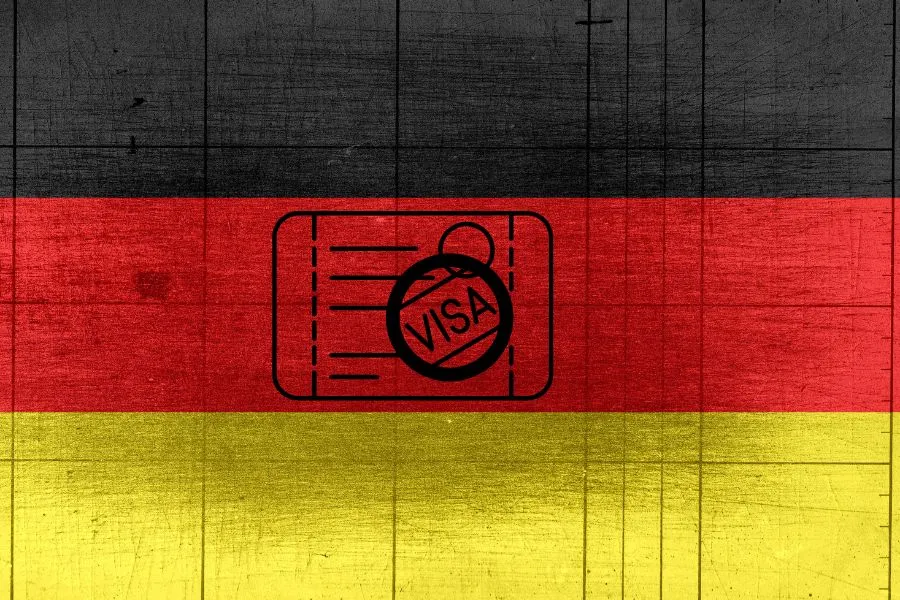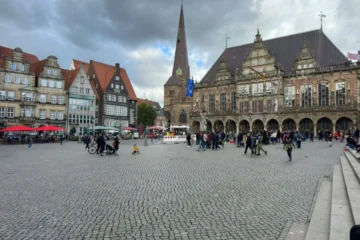Germany isn’t just Europe’s economic powerhouse—it’s also one of its most popular entry points for Schengen travelers. In 2024 alone, the country processed over 1.5 million Schengen visa applications, approving approximately 1.29 million of them. That’s an approval rate of 85.41%, putting Germany among the more reliable destinations for visa applicants.
Key Takeaways
Why Is Germany a Popular Schengen Visa Destination?
Much of this demand is driven by travelers from China, Türkiye, and India, who collectively accounted for more than 40% of all applications. Germany’s appeal lies not only in its central location, making it a perfect base to hop across Europe, but also in its robust infrastructure, cultural offerings, and extensive academic and professional opportunities. Whether you’re headed for the Black Forest, a Berlin business conference, or a Bavarian family reunion, Germany remains a top Schengen choice.
What Types of Germany Schengen Visas Are Available in 2025?
Before diving into paperwork and appointments, it’s crucial to know what type of visa you’re applying for. Germany offers several short-stay visa categories under the Schengen system, each tailored to different travel purposes. Here are the most common:
- Tourist Visa: For leisure trips, sightseeing, or short personal visits.
- Business Visa: Ideal for attending conferences, meetings, trade fairs, or signing deals.
- Family or Friends Visit Visa: For visiting relatives or acquaintances residing in Germany.
- Study or Internship Visa (Short-Term): For academic programs or training lasting less than 90 days.
- Medical Treatment Visa: For planned medical care in Germany.
Each of these allows you to stay up to 90 days within 180 days, and you can travel across other Schengen countries during your stay, provided Germany is your primary destination.
When and Where Should You Apply for the Visa?
Timing and location matter when applying for a German Schengen visa. You must submit your application no more than six months before and no later than 15 working days before your intended travel date. However, applying at least one month in advance is ideal, especially during peak holiday or school vacation periods.
You can book an appointment either:
- Through VFS Global, the official partner for visa application processing in most countries (including India).
- Directly with a German Consulate or Embassy, particularly if you live in a city where VFS doesn’t operate.
Make sure you book the appointment with the correct jurisdiction, as consulates usually handle applications based on your place of residence. And yes, walk-ins are not accepted—everything runs on a pre-booked appointment system.
Also Read: Why Has Germany Decided to End the Visa Remonstration Procedure in 2025?
What Documents Do You Need for a Successful Application?
Let’s be honest—this is the part where many stumble. Your application’s success hinges largely on getting the documentation right. Here’s what you’ll need:
- Valid Passport: Must be issued within the last 10 years and valid for at least 3 months beyond your planned exit date from the Schengen area.
- Completed Visa Application Form: Available online or at your nearest consulate/VFS center.
- Two Recent Passport Photos: As per biometric standards—no selfies or ancient holiday pictures, please.
- Travel Insurance: Coverage of at least €30,000, valid throughout all Schengen countries, and covering medical emergencies and repatriation.
- Flight Itinerary: You don’t need to buy tickets upfront, but a booked reservation showing entry and exit dates helps.
- Proof of Accommodation: Hotel bookings, Airbnb reservations, or an invitation letter from a host in Germany.
- Proof of Financial Means: Bank statements from the last three months, pay slips, or a sponsorship letter from a host who agrees to cover your expenses.
- Cover Letter: A brief explanation of why you’re visiting, your plans in Germany, and your travel dates.
Double-check if your consulate asks for additional country-specific requirements, like income tax returns, employment letters, or no-objection certificates. Better safe than sorry.
How Does the Application Process Work Step by Step?
Once you’ve gathered your documents, it’s time to move through the actual application journey. Here’s what to expect:
- Book an Appointment: Via VFS Global or the German mission’s visa portal.
- Fill Out the Application Form: You can complete it online or download and fill it out manually. Either way, print and sign it.
- Prepare Your Documents: Arrange your documents in the order specified by your local consulate or VFS center.
- Attend Your Appointment: Show up on time (early is better), submit your documents, and provide biometric data (fingerprints and a photo).
- Pay the Visa Fee: As of 2025, it’s around €80 for adults, with reduced fees or exemptions for children and students in certain cases.
- Track Your Application: VFS provides a tracking number so you can check the status online.
- Collect Your Passport: You’ll be notified when it’s ready. If your visa is approved, congratulations! If not, you’ll receive a written explanation.
What Are the Common Reasons for Visa Rejection?
With Germany’s visa approval rate sitting at a solid 85%, chances are in your favor—but that remaining 15%? It’s mostly due to avoidable errors. Here are the usual culprits:
- Insufficient Financial Proof: You must demonstrate that you can fund your stay.
- Inconsistent Travel Plans: Mismatched dates in your application, itinerary, and bookings can raise red flags.
- Dubious Travel History: A history of overstays or visa violations in other countries might make consular officers hesitant.
- Weak Ties to Home Country: Failing to show reasons to return (like employment, property, or family) may suggest a risk of overstaying.
- Lack of Proper Insurance: Either not covering the full period or not meeting the €30,000 minimum.
If rejected, you can either reapply with corrected documents or file an appeal, though that route can take time and effort. For most, reapplying correctly is quicker and simpler.
How Long Does It Take and What Happens After You Apply?
Processing times for German Schengen visas are generally efficient. On average, it takes 7 to 15 calendar days. That said, delays can occur if:
- It’s peak tourist season.
- Your documents require further verification.
- You’re applying from a high-volume country like India or Türkiye.
After submission, you’ll be able to track your visa status online. Once a decision is made, your passport will either be sent back by courier or made available for pickup, depending on the option you selected.
If your visa is approved, it will include:
- Entry Type: Single, double, or multiple entry.
- Validity Period: Start and end dates for when you can enter the Schengen zone.
- Duration of Stay: The number of days you’re allowed to stay during that validity period.
Make sure to adhere strictly to the permitted stay duration, as overstaying can negatively impact future visa applications, not just to Germany, but to any Schengen country.
Final Thoughts
Successfully applying for a German Schengen visa in 2025 isn’t rocket science, but it does require careful preparation, timely scheduling, and a clear sense of purpose. With an 85% approval rate and an organized application system, Germany remains one of the most accessible Schengen destinations, especially for travelers who do their homework.
If you’re planning to travel—whether it’s to stroll through Berlin’s art galleries, attend a business summit in Frankfurt, or just enjoy a bratwurst in Bavaria—start early, stay organized, and be honest in your paperwork. Germany is waiting, and the process is smoother than ever—if you know how to navigate it.





